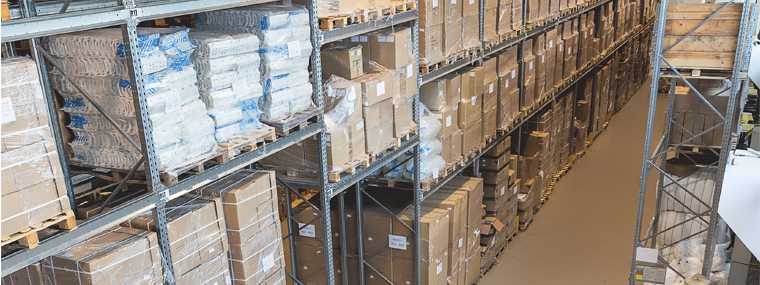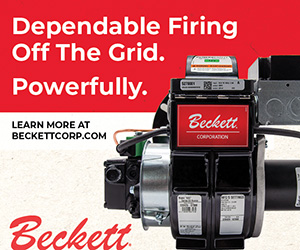
What a Manufacturer Wants in a Distributor
By Diane M. Calabrese / Published September 2019

Who has not read an article about a restaurateur so in tune with the environment that he or she grows the vegetables (organically); obtains eggs and meat from (free-range) chickens that live among the vegetables eating insect pests; recycles all the dishwater (okay, we made that one up); and cooks and serves gourmet cuisine? To which the only two possible reactions are absolute awe or total disbelief.
Specialization strengthens communities and economies. It is fine to do a little of everything one enjoys, but working to do at least one thing very well adds to the wellbeing of all. Think of the neurosurgeon who just saved a life, the cellist who just inspired an audience, or the manufacturer who just released a new and welcome product.
Because manufacturers can rely on distributors to liaise with end users, the manufacturers can focus on continuous improvement of product and innovation. They design and build. Distributors communicate the utility and functionality of products to those in need of them; and they relay information from end users to manufacturers.
So significant are the distributors that represent manufacturers that the Occupational Outlook Handbook from the U.S. Bureau of Labor Statistics (BLS) devotes an entry to them. Among the qualities the BLS guide enumerates as important to distributors are customer service acumen, interpersonal skills, physical stamina, and self-confidence.
True, the qualities apply across many occupations. Details matter, though. As the BLS guide notes, customer service begins with listening to what the customer needs—and doing so both before and after the sale.
There’s one distributor quality that Terry Craycraft, North American business development manager at Hydro-Chem Systems Inc. in Caledonia, MI, would put ahead of all others. “I would say they must have great communication skills,” he says. “Without communication, the partnership between manufacturer and distributor can’t build into something great.”
The manufacturer and distributor work toward the same goal—serving the customer—and each contributes to it a bit differently. “I’m looking for a distributor that doesn’t mind getting out in the field and showing their customers how to clean fleets and heavy equipment,” says Craycraft. “The company needs experience in blending chemicals, working with various ways to apply detergents—with pressure washers, foaming systems, 12v sprayers, etc. Our distributors are ‘extensions’ of our company, and I want them to be as knowledgeable in the detergents as we are.”
The nature of the product line will also determine some of the extra capabilities a manufacturer seeks in a distributor. Craycraft says there are several “additional things” he looks for.
“Do they have experience working with hazardous chemicals?” says Craycraft. “In the fleet and heavy equipment industry, you are dealing with corrosive chemicals that are needed to help clean equipment in an efficient manner.”
Other questions Craycraft says he is likely to ask a possible distributor may include the following: “Does your company have regular access to a forklift? Does your company sell or distribute pressure washers or other soap application systems? How many sales people does your company have? Do you have access to a heated building to store and blend chemicals?”
Craycraft alludes to one distributor attribute that a manufacturer will take as a given: The distributor must be fully immersed in knowledge about the product line.
The distributor must be willing to learn, too. Most manufacturers offer ongoing training programs for their distributors. Training for distributors may include certification. Many distributors in our industry work for and maintain certification from the Cleaning Equipment Trade Association (CETA).
A more general certification has also taken hold in some industries (e.g., farm equipment). It is the Certified Professional Manufacturers’ Representative (CPMR) offered by the Manufacturers’ Representatives Educational Research Foundation (https://mrerf.org). MRERF also offers Certified Sales Professional (CSP) certification.
Both CETA-certified and CPMR sellers commit themselves to a strict code of ethics. Distributors looking for new team members may encounter applicants who do not have experience in the pressure washer sector, but some of the applicants will have CPMR certification. The certification is a good sign that the prospective employee wants to learn, sell, and be part of a growing team.
Growing Together
Manufacturers want their distributors to know the products well, and they want distributors to sell the products with confidence in the way the product will perform.
“We want distributors to be aggressive and assertive,” says Jonathan Jansen with project management and new business development at AaLadin Industries Incorporated in Elk Point, SD. “We look for distributors that want to have a unique, competitive product that provides them with multiple competitive advantages over other pressure washers on the market.”
Jansen cites the absolute confidence his company has in its pressure washers. He wants distributors to convey that confidence. “We want people who want to sell quality and value,” he explains. “They need to be a full-service dealer with sales, parts, and service to take care of the customer for all their pressure washer needs.”
The distributor must also want to grow. “They must be interested in profitable growth,” says Jansen. “We want distributors who have a hunger to grow their business and the bottom line.”
In conjunction with the appetite for sustained growth, distributors must be committed to customer outreach. “They, or someone on their team, must be willing to be dedicated to educating the customer about our products and features,” says Jansen. “This will allow them to show the customer how our products will provide a better experience with less downtime and lower their total cost of ownership.”
The product is the essential bond between a manufacturer and a distributor. The array of functions a distributor does that benefit a manufacturer derive from that bond.
A manufacturer wants its distributors to be in a healthy financial position and to understand their cost centers and cash flow. Encouraging or facilitating participation by distributors in benchmarking programs is one way manufacturers help bolster their distributors.
With benchmarking, such as the Planning for Profit program offered through CETA, distributors can get a quantitative picture of how their investments are paying off in returns. If team members at distributor A sell only half as much (dollar volume) as team members at distributor B, the owner of distributor A ought to be asking, “Why?” Perhaps the team is too large for the territory. Perhaps there is one team member who is simply not selling and is pulling down the average.
A willingness to work with the manufacturer allows a distributor to ensure optimal sales are being made by each sales representative. The collaboration on analyses of performance also assists manufacturers who wish to determine whether they should be dropping parts of their product line or expanding the line.
By using a network of distributors, manufacturers gain wide representation with end users. A distributor in the Midwest may serve primarily end users in agriculture. A distributor in New England may serve mostly end users that work in commercial or residential settings. Each distributor will be able to serve its customer base with more intimate and immediate help than would the manufacturer who is based in neither place.
While manufacturers are building, distributors are selling and dealing with the pesky issues that arise in selling. They do credit checks, handle returns, instruct in the use of machines, perform routine maintenance, and receive and distill customer feedback.
Distributors also make it easy for manufacturers to introduce new products. They can make their existing customer base aware of what’s coming soon or just arrived, and they can tell the customers why they should have a look at the product.
In effect, distributors make it possible for manufacturers to develop a personal bond with their end users. For that reason alone, manufacturers want distributors that reflect their philosophy of doing business. Manufacturers want distributor channels that are as free of obstacles and navigable as any can be.
Manufacturing remains a vital sector (and recently is again a growing sector) of the U.S. economy. According to the Manufacturing Institute, if the U.S. manufacturing sector were a country, it would rank as the eighth largest economy in the world.
Manufacturers are busy, and we hope they will be busier still as the years unfold. By leaving customer contact and interaction, explanation of product features, price discussions with end users, and product questions to a trusted group of distributors, manufacturers free up time and have the ability to focus on innovation and expansion.
In that context, a distributor may be concerned if a manufacturer it represents begins to sell directly to some customers in its market. Try to imagine a green farmer walking into a restaurant and selling carrots or radishes directly to seated customers. That’s a recipe for confusion. There’s a reason for specialization. It allows everyone to do more, better.
BLS sees a bright outlook for distributors, which it characterizes as manufacturing sales representatives that typically represent more than one manufacturer. Growth between now and 2026 should be in sync with growth across all occupations, or about five percent.





